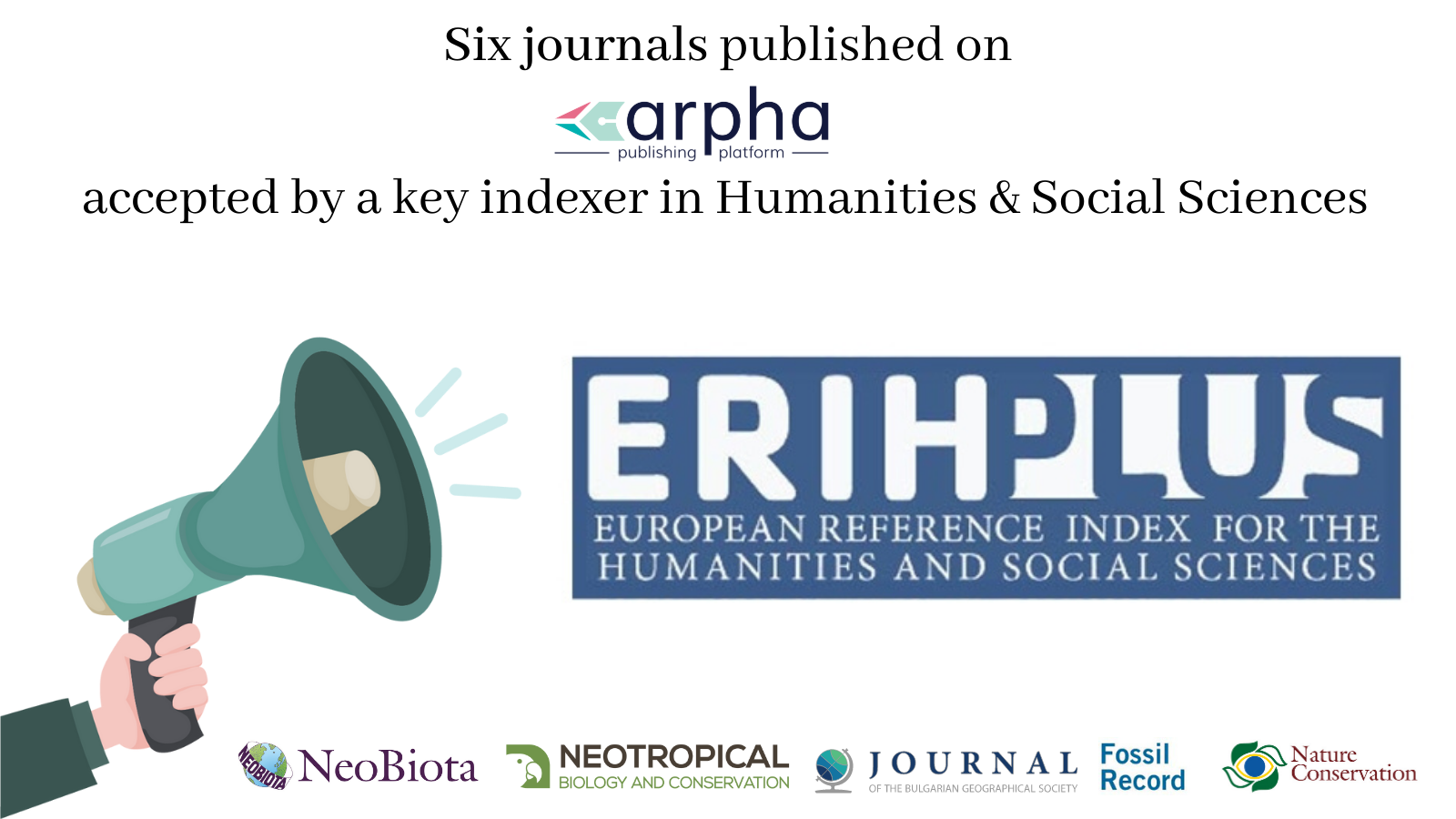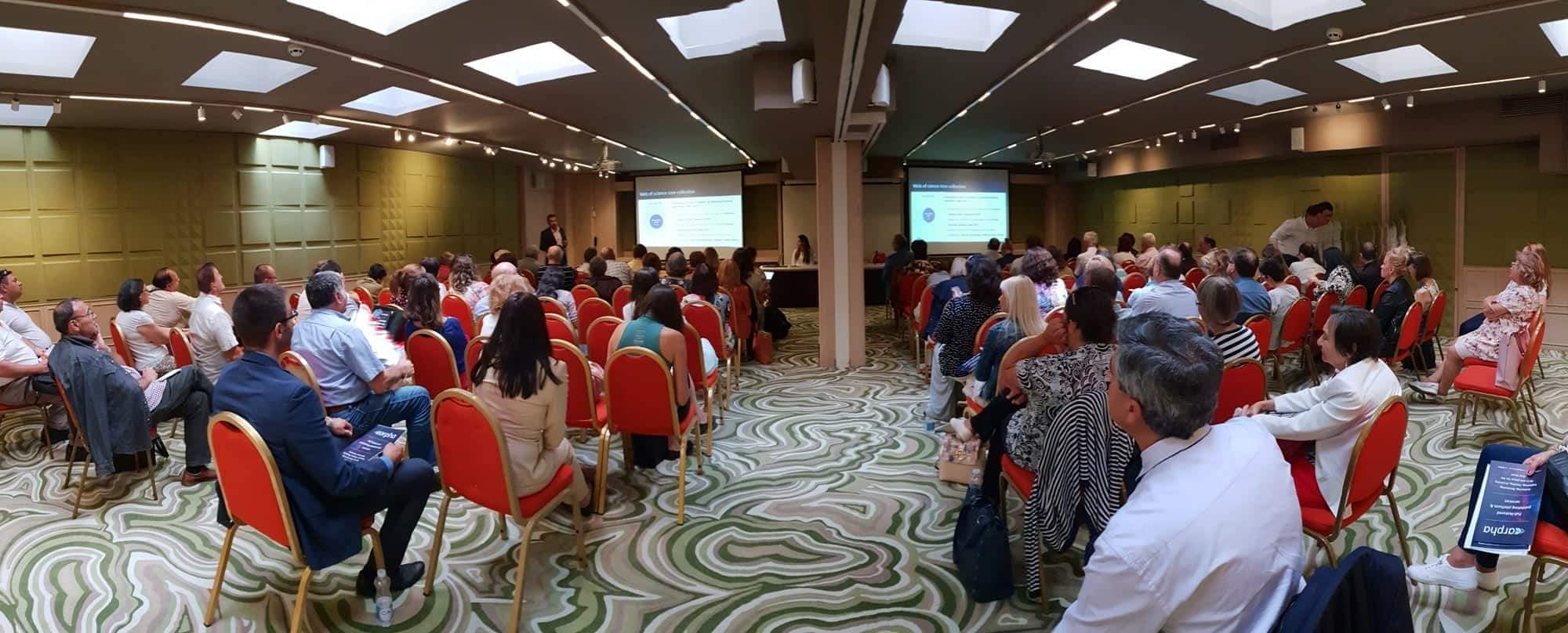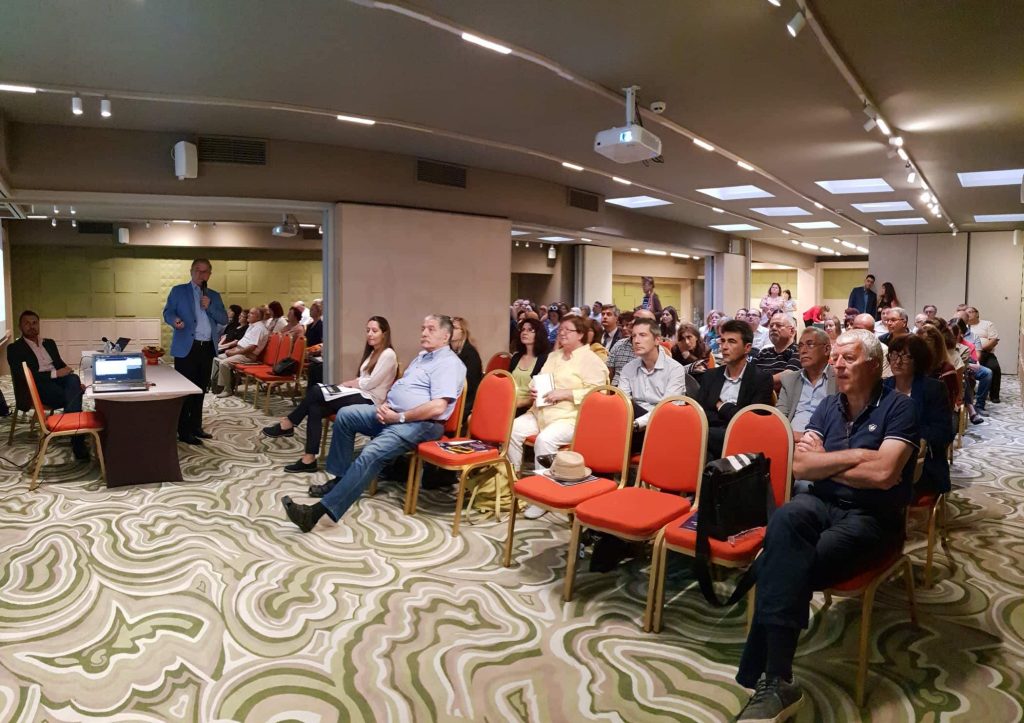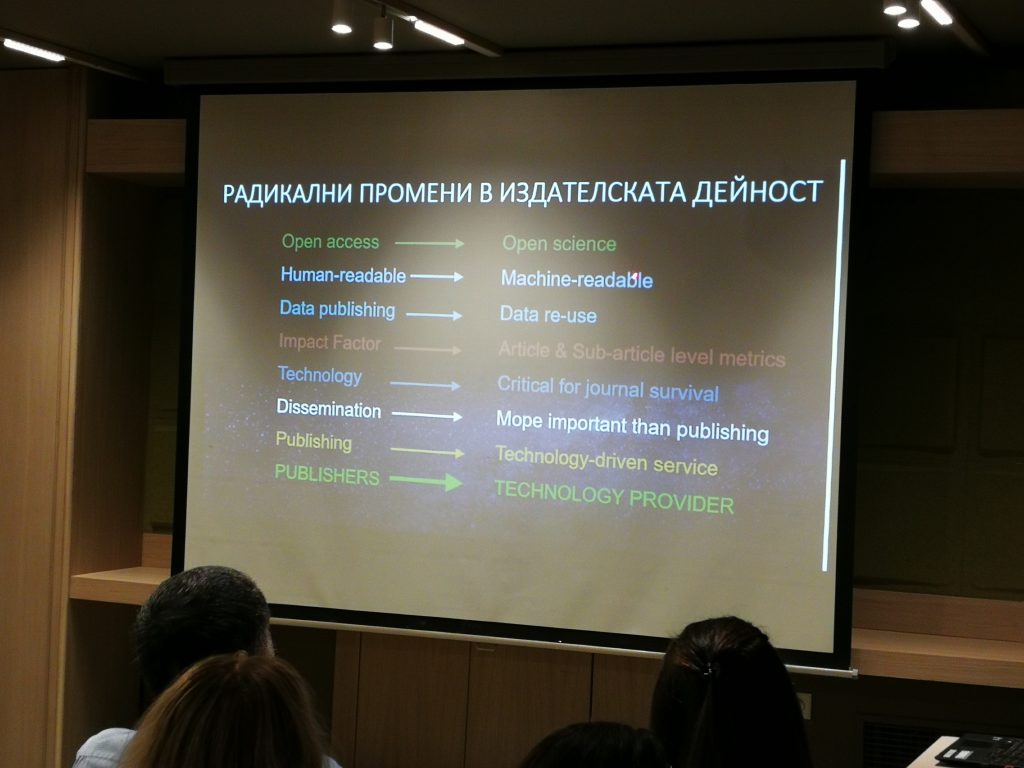Following a thorough evaluation that has been going on for the last several months, the Indexing team at ARPHA Platform reports that the applications submitted on behalf of six journals have all been approved by ERIH PLUS – the European Reference Index for the Humanities and Social Sciences (HSS)
Four journals (co-)published by the scholarly publisher and technology provider Pensoft: Nature Conservation, NeoBiota, Neotropical Biology and Conservation and Fossil Record, and two journals using the white-label publishing solution of ARPHA Platform: the Journal of the Bulgarian Geographical Society and the Amsterdam University Press’ Heritage, Memory and Conflict (HMC) were recently accepted by the key index within the field of Humanities and Social Sciences (HSS): ERIH PLUS.
ERIH (European Reference Index for the Humanities or ERIH) was established by the European Science Foundation. In 2014, it was extended to also include social science disciplines and was renamed ERIH PLUS.
The aim of the index is to increase the visibility, searchability and availability of research published in the fields. It is widely used within the European academic community.
“We want to be a key player in the European work that is done to make HSS research available to the wider community, and we want to do this by providing an index which not only supplies metadata about journals, but also places the HSS research in a wider academic context,”
says the team behind ERIH PLUS.
The ERIH PLUS easily-searchable database includes journals that have proved to meet an extensive list of requirements in line with good academic practices and research integrity, such as:
“explicit procedures for external peer review; an academic editorial board, with members affiliated with universities or other independent research organizations; a valid ISSN code, confirmed by the international ISSN register; abstracts in English and/or another international language relevant for the field for all published articles; information on author affiliations and addresses; a maximum two thirds of the authors published in the journal from the same institution”.
ERIH PLUS is a member of different key-organisations like COPE (Committee on Publication Ethics) and DOAJ (Directory of Open Access Journals).
***
The six journals mentioned here are not the first ones in the ARPHA portfolio to be accepted at ERIH Plus. Already in the database are a total of 15 scholarly outlets published on the platform:
- BioRisk
- Check List
- European Science Editing
- Maandblad voor Accountancy en Bedrijfseconomie
- One Ecosystem
- Plant Ecology and Evolution
- Plant Sociology
- Research Ideas and Outcomes (RIO Journal)
- Rethinking Ecology
- Fossil Record
- Heritage, Memory and Conflict
- Nature Conservation
- NeoBiota
- Neotropical Biology and Conservation
- Journal of the Bulgarian Geographical Society
***
Support in indexing and archiving is only a part of the human-provided services offered by the ARPHA publishing platform to client journals regardless of their choice to be (co-)published by Pensoft or retain their own publishing brand.
You can find more about the services offered by ARPHA on the platform’s website.





